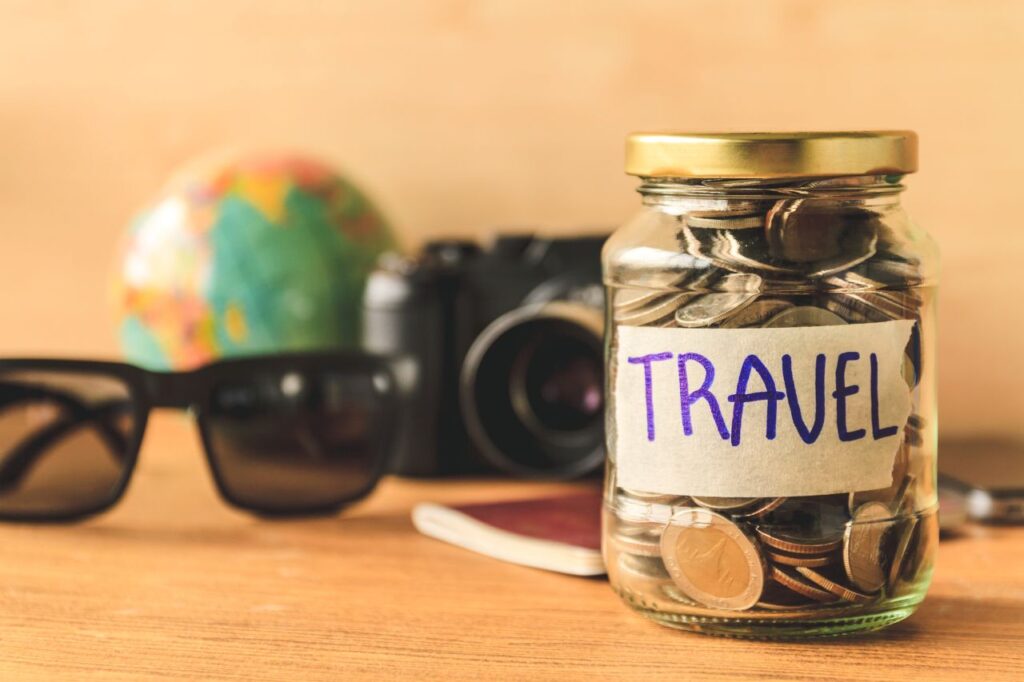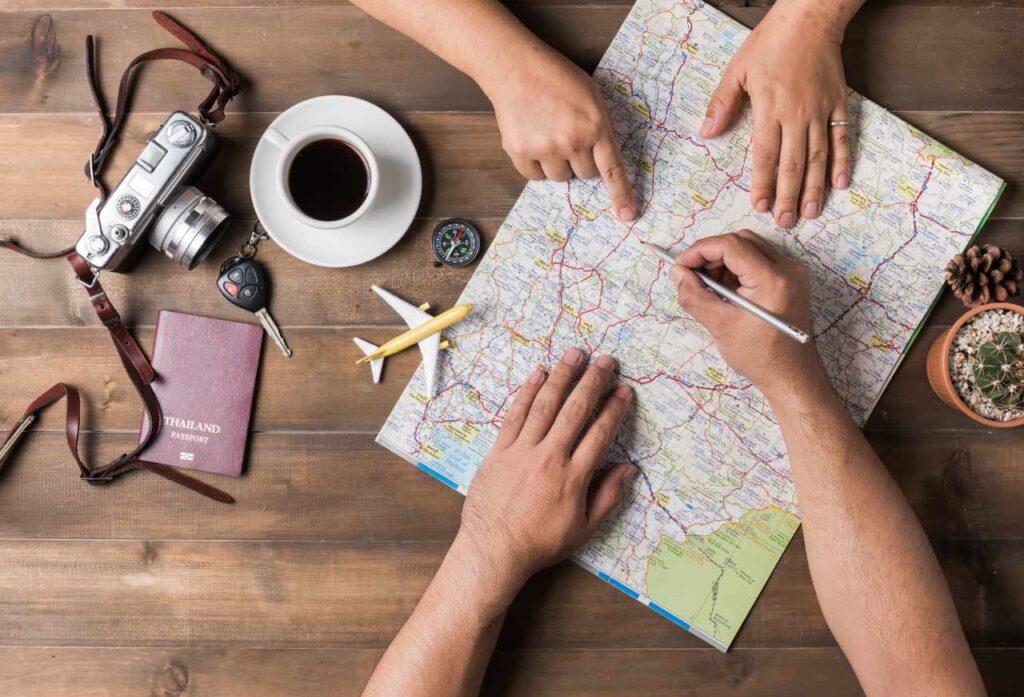
Budget travel gets a bad rap. Mention it and people picture grotty hostels, pot noodles for dinner, and missing out on the good stuff. Rubbish. Travelling on a budget isn’t about deprivation – it’s about being clever with your money so you can actually travel more often and for longer.
We’ve watched too many people postpone trips for “when they can afford it properly”, whilst savvy budget travellers are out there living their best lives. The difference? Knowing where to splurge and where to save. These aren’t theoretical tips from travel snobs – this is real advice from people who’ve mastered the art of stretching every pound.
1. Master the Accommodation Game
Forget the idea that budget accommodation means sacrificing comfort or safety. The sharing economy has revolutionised where we rest our heads. House-sitting gets you free accommodation in exchange for watering plants or feeding cats. Not bad for a beachfront villa in Portugal, eh?
Hostels have evolved beyond recognition. Many offer private rooms that cost less than budget hotels, with the added bonus of communal kitchens for self-catering. Look for ones with good reviews from solo travellers or couples – they’ll flag whether it’s a party hostel or somewhere you’ll actually sleep.
Work exchanges through platforms like Workaway or WWOOF trade a few hours of work for bed and board. You might find yourself harvesting olives in Italy or teaching English in Vietnam. It’s not just about saving money – these experiences often become trip highlights.
2. Eat Like a Local, Not a Tourist
Restaurant meals in tourist areas will demolish your budget faster than you can say “service charge”. Instead, follow the locals. That queue outside an unassuming food stall? Join it. Markets offer fresh, cheap ingredients and ready-made local specialities for a fraction of restaurant prices.
Breakfast from your accommodation, picnic lunch from a market, and one proper meal out daily strikes a good balance. When you do eat out, lunch menus often feature the same dishes as dinner for significantly less. Happy hours aren’t just for drinks – many places offer food deals too.
Street food isn’t just budget-friendly; it’s often the best food you’ll find. From Bangkok’s pad thai to Mexico City’s tacos, street vendors perfect one dish over decades. Just follow basic hygiene rules – busy stalls with high turnover mean fresher food.
3. Transport Tactics
Flights grab headlines, but ground transport often costs more overall. Overnight buses and trains save accommodation costs whilst covering distance. Sure, you won’t get the best sleep, but you’ll wake up somewhere new with extra money in your pocket.
City transport adds up quickly. Walk when possible – you’ll see more anyway. Many cities offer tourist transport cards that seem expensive initially but save money if you’re moving around lots. Do the maths based on your actual plans, not optimistic intentions.
Ride-sharing apps sometimes beat public transport prices, especially when travelling in groups. In some countries, shared taxis or minibuses offer rock-bottom prices if you don’t mind squeezing in with locals and their shopping.
4. Free Entertainment Everywhere
The best things in life genuinely are free. Museums often have free days or hours – research before you go. Walking tours operating on a tips-only basis provide expert insight without upfront costs. Pay what you think it’s worth at the end.
Nature doesn’t charge admission. Beaches, mountains, parks, and trails offer days of entertainment for the cost of getting there. Cities hide architectural treasures, vibrant markets, and people-watching spots that cost nothing but time.
Free events flourish if you know where to look. Check local Facebook groups, tourist information centres, and community boards. From concerts in parks to festival parades, cities constantly offer free entertainment for those paying attention.
5. Timing is Everything
Shoulder seasons offer the budget traveller’s sweet spot – decent weather without peak prices. You’ll save on everything from flights to accommodation, with the bonus of fewer crowds. Research your specific destination though – monsoon season might be cheap for good reason.
Book accommodation for the first night or two, then negotiate better rates in person for longer stays. This works particularly well in destinations with plenty of options. Seeing rooms before committing also prevents nasty surprises.
Stay longer in fewer places. Constantly moving means transport costs, packing stress, and always paying top rates. Weekly or monthly accommodation rates can slash per-night costs dramatically.
6. The Power of Planning (and Flexibility)

Budget travel requires more planning than luxury trips. Research visa costs and requirements – some countries charge eye-watering amounts for last-minute applications. Know your daily budget and track spending. Boring? Maybe. But running out of money halfway through is worse.
Build flexibility into rigid plans. That “must-do” activity might cost double during peak times. Having alternatives means you’re not forced into expensive choices. Sometimes the universe offers better options than your carefully crafted itinerary anyway.
Travel insurance seems like somewhere to save money until you need it. Budget for proper coverage – medical bills abroad can destroy finances faster than any splurge meal or fancy hotel.
7. Earn While Travelling
Teaching English, freelance work, or seasonal jobs can supplement travel funds. An unforgettable African wildlife journey might seem impossible on a shoestring, but a few weeks of work can fund incredible experiences.
Skills like photography, writing, or social media management translate well to location-independent income. Build these before leaving rather than hoping to figure it out on the road.
8. Smart Money Management
Foreign transaction fees are the enemy. Get cards that don’t charge them. Withdraw larger amounts less frequently to minimise ATM charges. Know your daily budget in local currency to avoid constantly converting and overspending.
Negotiate respectfully, especially in markets. Research appropriate prices beforehand. Haggling shouldn’t be about grinding vendors down to nothing – it’s about reaching fair prices for both parties.
9. Connect and Share
Other travellers are goldmines of current information. That person leaving as you arrive? They know which restaurants offer value, which tours are overpriced, and where to find the best sunset spot. Travel communities share discount codes, warn about scams, and sometimes even split costs.
Travelling with others, even temporarily, reduces costs through shared accommodation and transport. Don’t force friendships for savings, but remain open to companions heading your direction.
10. Mindset Matters Most
Budget travel isn’t about constant sacrifice. It’s about prioritising what matters to you. Maybe you’ll sleep in basic rooms to afford that diving course. Perhaps you’ll self-cater to splurge on a special experience.
Stop comparing your journey to Instagram fantasies. Those perfect shots don’t show the credit card bills. Your budget adventure is just as valid – probably more so because you’re actually doing it rather than dreaming about “someday”.
The skills you develop travelling on a budget – flexibility, creativity, resilience – enhance life long after you return home. Plus, when you can travel well on little money, imagine what you can do when funds increase. Start now with what you have. The world’s waiting, and it doesn’t require a trust fund to explore it properly.

